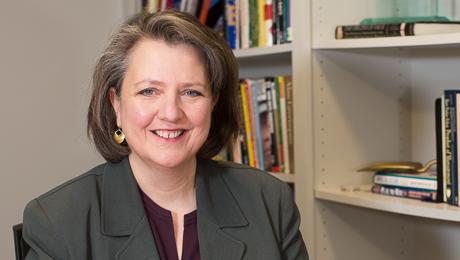One of Kathleen Merrigan’s first jobs out of college involved a fight against groundwater contamination in the small town of Whately, Mass., where residents couldn’t drink or even shower using the water from their wells.
“I asked questions and said, ‘Let’s pinpoint future policies that might exist,’” Merrigan told a group of top administrators and trustees on Friday. “‘Let’s figure it out so that other communities don’t go through the turmoil that Whately just almost survived.’”
Merrigan, who was named the first executive director of GW’s Sustainability Institute this week, spent the next several decades tackling the country’s biggest environmental problems in her roles as an academic and later a government leader.
She will take helm of GW’s newest research institute next month, after a four-year stint as the deputy secretary of the U.S. Department of Agriculture.
“I’m so glad to join a community of scholars who are going to lend the best minds and great energy to the greatest causes of our day in the city, a capital city,” Merrigan said. “We’re in the perfect place to be a global leader in sustainability.”
In addition to overseeing sustainability-related academic programs and research, Merrigan will also work on GW’s operations-focused goals, like becoming carbon neutral by 2040, with the Office of Sustainability.
University President Steven Knapp, who owns a sheep farm in suburban Maryland and launched the sustainability office in 2009, said he hoped the institute could boost the University’s green goals while stepping up its academic commitment to sustainability.
“[Merrigan] will be a great collaborative influence for what has been a very key strategic focus, priority certainly for my administration,” Knapp said Friday.
Merrigan, a fierce proponent for organic and locally grown food, has also worked on first lady Michelle Obama’s ‘Let’s Move’ campaign to fight childhood obesity.
She served as the U.S. representative on the United Nations Commission on Sustainable Development after spending a decade as a professor at Tufts University and the director of its Agriculture, Food and Environment Program.
Merrigan comes to GW as an increasing number of undergraduate students have expressed interest in sustainability courses and the University’s new minor, which counts more than 100 students. The University is also planning its first sustainability-related alternative break this year.







